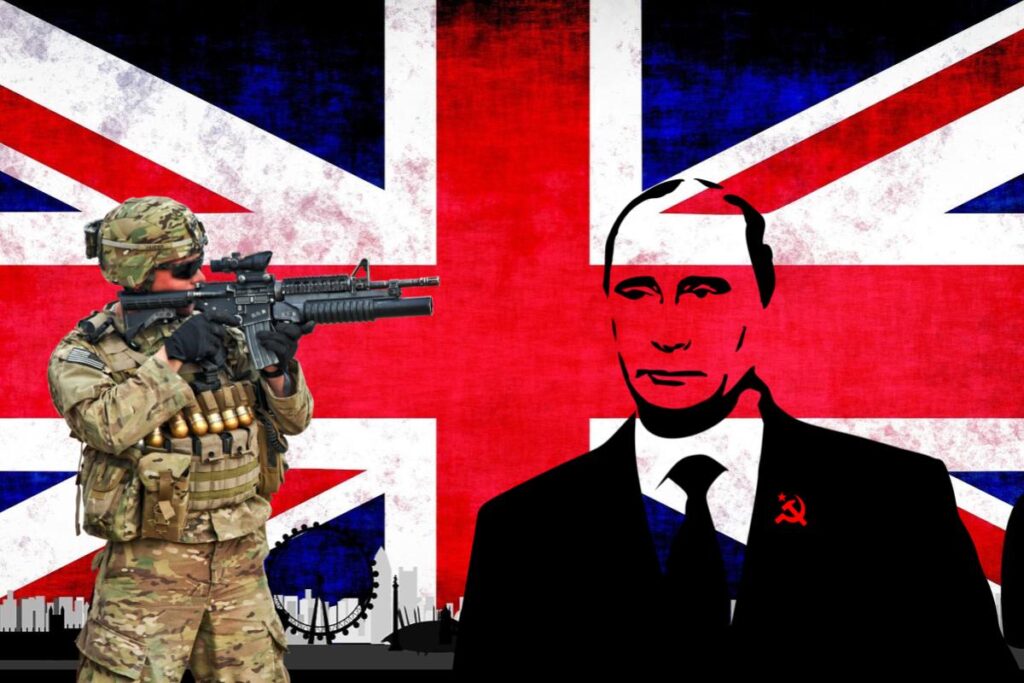The UK is fast-tracking legislation to target money-laundering by foreign oligarchs. The government’s move follows Russia’s decision to invade Ukraine. As part of the measures, foreign property owners will have to declare their identities rather than using companies as a façade.
It follows the economic sanctions announced by Prime Minister Boris Johnson on Tuesday which targeted major Russian banks and leaders. The government said the legislation will support the National Crime Agency work in targeting corruption. The Economic Crime Bill will include a new register that will mean foreign owners of UK property must declare and verify their identities with Companies House.
The aim is to stop overseas criminals and oligarchs from using agents to create companies or buy property for them in the UK.Entities that refuse to declare their owners will face restrictions in selling property and those who break the rule could be imprisoned for up to five years. The register also applies to property bought by overseas owners up to 20 years ago in England and Wales and from December 2014 for property in Scotland.
Companies House will also have more information on firms to increase corporate transparency, the government said.
On Monday the business secretary Kwasi Kwarteng said that agents from overseas would no longer be able to create UK companies on “behalf of criminals”. The process to register a new company in the UK can cost as little as £12.
Mr Kwarteng told Parliament that oligarchs and kleptocrats have benefited from the “veneer of legitimacy” provided by UK-registered companies and partnerships, while using high-end property to help “launder proceeds of corruption”.
.
.
Mr Kwarteng said the new register will “shine a light” on who owns what in the UK so the government could “flush out the oligarchs, criminals and kleptocrats who think they can use UK property to hide their illicitly obtained wealth”.
The National Crime Agency’s ‘Kleptocracy’ cell, announced last week, will also begin to investigate sanctions evasion and be able to seize crypto-assets used for money-laundering.
The legislation also strengthens Unexplained Wealth Orders (UWOs) which were powers brought into force in January 2018 in the fight against suspected criminal money invested in property.
However, UWOs have been used just four times since 2018 and only one has resulted in property being surrendered so far.
UWOs will be reformed to give law enforcement agencies more time to review case material and to protect them from substantial legal costs if they pursue reasonable cases which are ultimately unsuccessful.
.
‘Not far and fast enough’
British officials trying to freeze individual accounts held by Russian billionaires face difficulties in part due to the systems of trusts and shell companies that hold their fortunes.
Thomas Mayne, visiting fellow from thinktank Chatham House’s Russia and Eurasia Programme, said while revealing ownership was a “step forward”, enforcement needed to be effective.
“If there are no penalties for submitting false or misleading information (and, like with Companies House, funding of UK authorities to properly investigate), then the bill will be useless,” Mr Mayne said.
Around 87,000 properties are owned by offshore companies in the UK which Mr Mayne said means the authorities have “no idea who owns them”.
“Actually getting the owners on record, checking the information and penalizing those who submit false information will likely take years,” Mr Mayne added.
Shadow chancellor Rachel Reeves said that Labor supports the legislation and will “scrutinize the strength of these measures, which the government must enact in their strongest form to tackle dirty money once and for all.”
Labour said the measures were “welcome” but “don’t yet go far and fast enough”
“The long overdue Register of Overseas Entities, originally promised in 2016, must now be implemented at speed. Any transition period must be completed by the end of March and be accompanied by tough enforcement measures,” she continued.
Shadow home secretary Yvette Cooper said the measures were “welcome” but “don’t yet go far and fast enough”.
“Alongside strong sanctions we need an urgent crackdown on illicit finance, corruption and organized crime linked to Russia. For too long the City of London and the UK economy has been used as a laundromat by corrupt elites linked to organized crime,” Ms Cooper added.
The anti-corruption organization Transparency International has identified at least £1.5bn of UK property owned by Russians accused of financial crime or with links to the Kremlin.
As part of the latest round of sanctions, Mr Johnson said the government will also limit the amount of money Russian nationals will be able to deposit in their UK bank account.
.
February 28, 2022, published by The BBC News.







